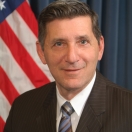
Substance use disorder is a chronic brain disorder from which people can and do recover. Through the Affordable Care Act and other actions, this Administration has taken significant steps to help millions of people receive quality care, sustain recovery, and live healthy and productive lives. However, persistent stigma still creates barriers to treatment and recovery.
To help address this, the White House Office of National Drug Control Policy prepared a document for Federal agencies about terminology related to substance use and substance use disorders. The document was developed in consultation with external research, policy, provider, and consumer stakeholders and in collaboration with Federal government agencies. It addresses the role stigma plays, identifies scientific and medical literature demonstrating how certain terminology adversely affects the quality of health care and treatment outcomes, and promotes the use of person-first language and terminology that aligns with the current edition of The Diagnostic and Statistical Manual of Mental Disorders (5th ed., American Psychiatric Association, 2013).
Because stigma and shame may deter help-seeking behavior among individuals with substance use disorders and their families, the document draws attention to terminology that may cause confusion or perpetuate stigma.
By using accurate, non-stigmatizing language, we can help break the stigma surrounding this disease so people can more easily access treatment, reach recovery, and live healthier lives.
Read the document here.


